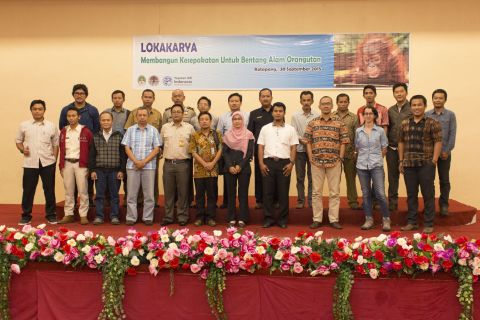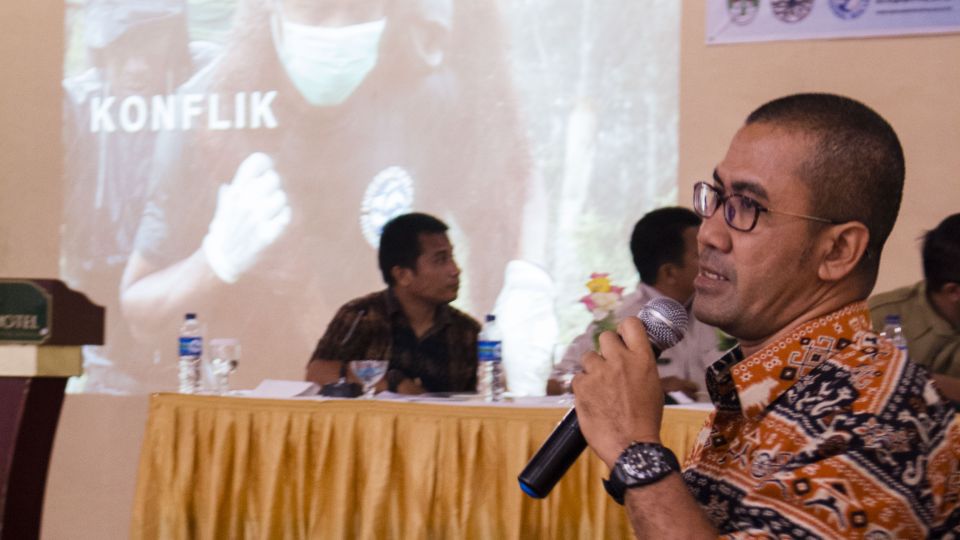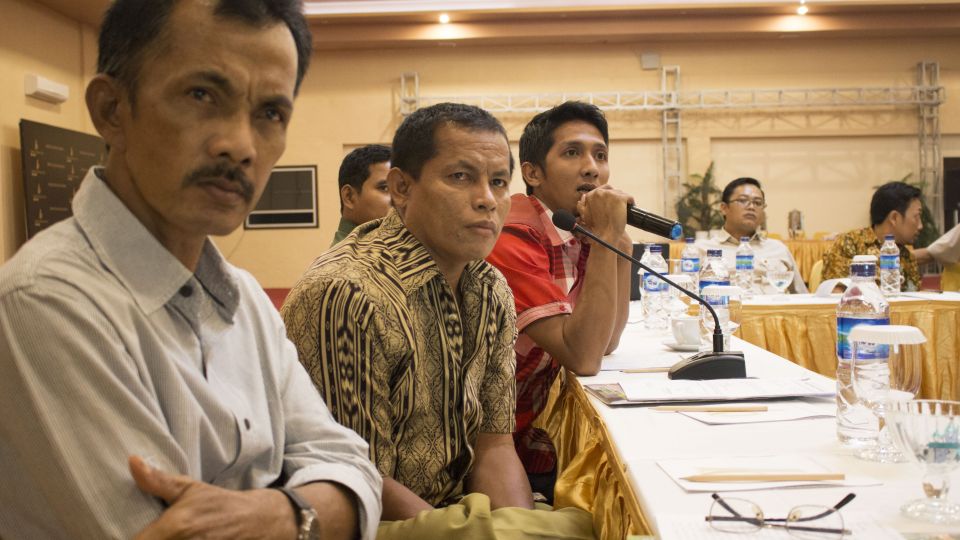
Orangutan habitat conditions in the Ketapang District are extremely fragmented and therefore every effort is needed to begin integrating them based on a landscape approach.
On the 30th September 2015, International Animal Rescue Indonesia (YIARI) held the first ever multi-stakeholder workshop entitled ‘Building a Landscape Agreement for Orangutans’. YIARI was partnered in this workshop with the Nature Conservation Agency of West Kalimantan and also the Agricultural Department. As well as representatives of various local palm oil plantations, many local government departments attended, such as Gunung Palung National Park, Bappeda Ketapang, the Forestry Department, Police and the Indonesian Palm Oil Association (GAPKI).
“The aim of this event is to bring the palm plantation companies into the conservation discussion as ultimately, they have the resources to engage this model on the ground” said Herman, chairman of the committee workshop.

Through the workshop it is hoped that all parties should commit to manage the forested areas in their concessions. The scope of this forestry management would include orangutan conservation, wildlife protection, preventing encroachment on to protected land and controlling forest fires. In light of the ever growing fragmentation of the forests, this strategy is crucial to ensure the sustainability of the orangutan population and their habitat. It is also important to create a landscape that aligns the interests of human beings without compromising the interests and safety of orangutans – a one landscape approach.
Tantyo, Chairman of YIARI added, “Most of the orangutan’s habitat is outside of the conservation area. In West Kalimantan alone, the orangutans inside only account for just 30% while the remaining 70% are all outside of the designated conservation area. As a result we have seen human – orangutan conflict. Our data shows from 2009 to 2015 the number of conflicts continued to rise, in 2015 alone there has already been 19 orangutan rescues”.
The outcomes of the workshop are as follows:
- To establish a forum to facilitate the communication between a variety of parties (both private sector and public) in order to discuss and oversee a strategy to resolve the ongoing conflict with orangutans.
- The prevent future conflicts with orangutans, palm oil plantations should produce and implement better management strategies for the forested areas in their concession. For example, restoring orangutan habitats which are degraded and creating a barrier between the edge of the forest and their concession.
- Improving legislation on the development of sustainable palm oil.
International Animal Rescue and our partners would like to thank all delegates for attending the workshop. It is a step in the right direction towards sustainable palm oil and protecting the natural biodiversity of Indonesia’s rainforest.


